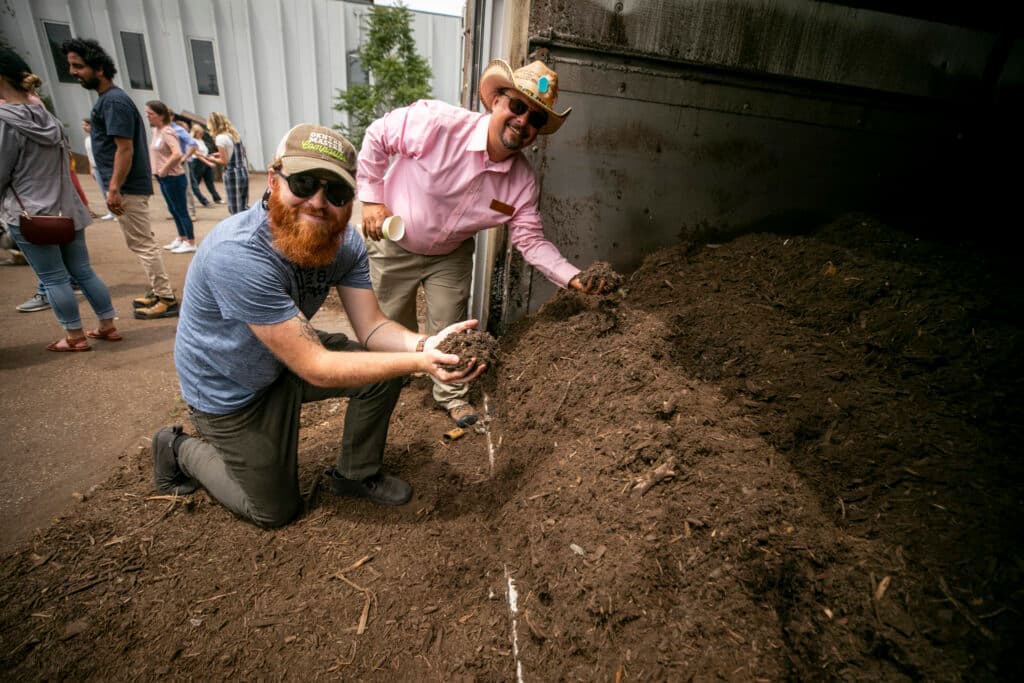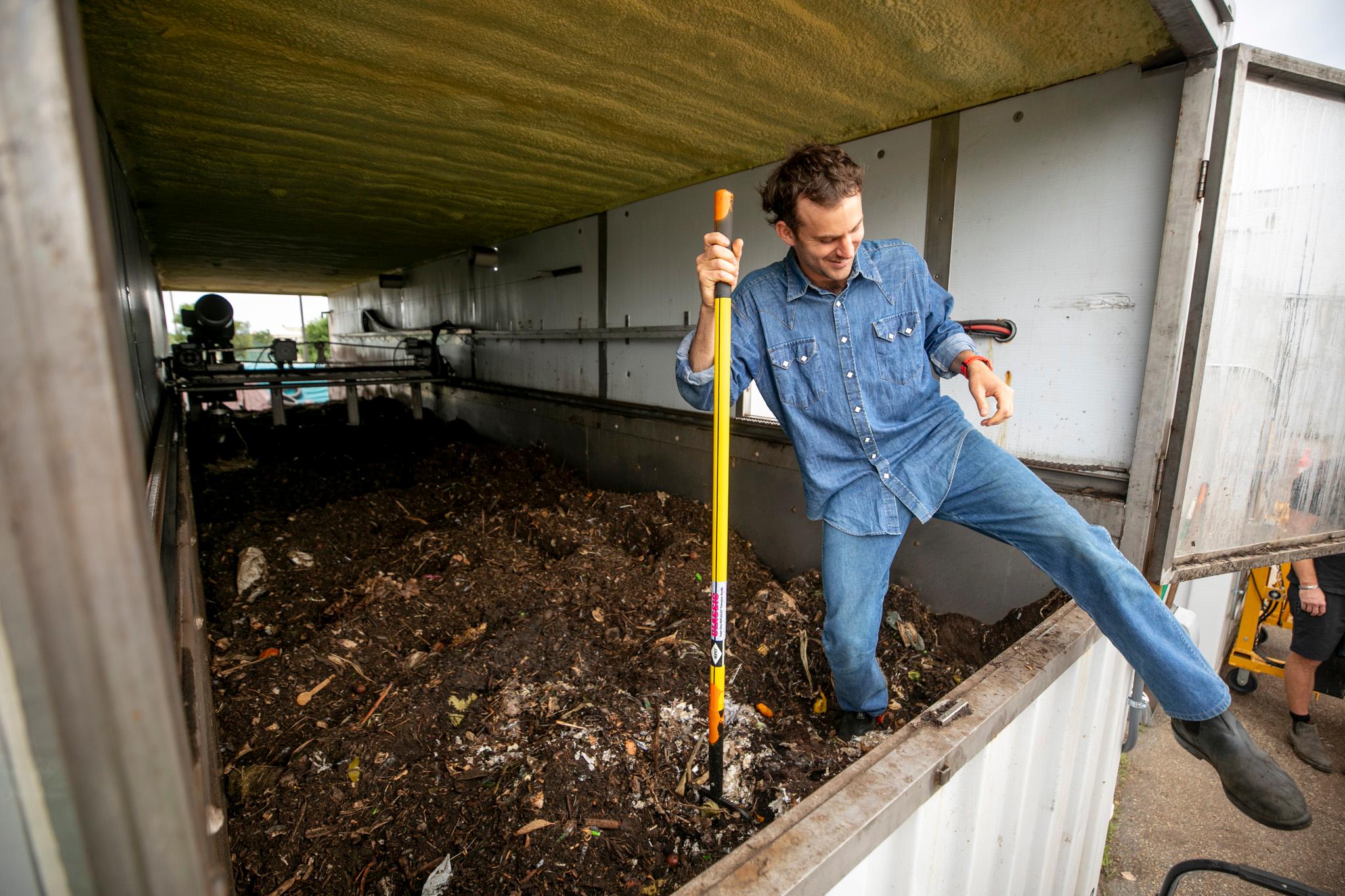Vann Fussell, the founder of Compost Colorado, swung open one of two shipping containers the company uses to process food scraps and organic waste at a new site in north Denver on Wednesday afternoon.
Around three feet of spongy compost stood inside the metal vessel. The smell of ripe vinegar and dirt overcame a crowd of around two dozen people assembled for a ribbon-cutting ceremony for the facility — a small operation claiming the title of the first commercial composting site within Denver’s city limits.
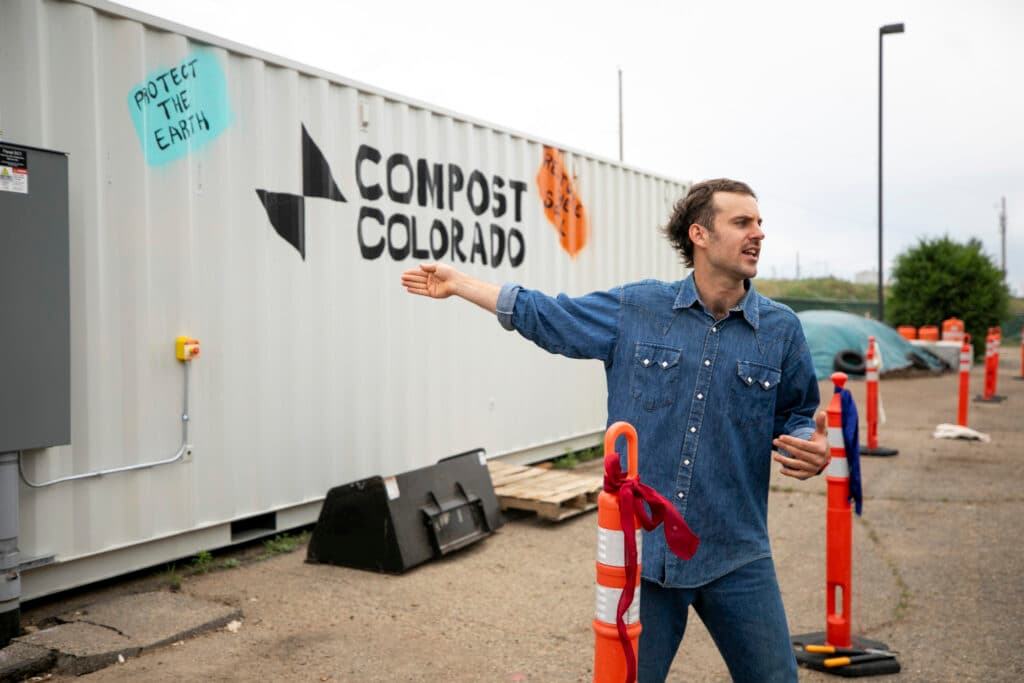
“If we were at a larger compost facility, you’d be smelling a lot more smells than you’re smelling right now,” Fussell said. “We don’t mind organic smells here, but we do have an odor filter.”
Compost Colorado began operating the site near the National Western Center six weeks ago. Since it fits into a small parking lot, Fussell hopes similar sites could someday squeeze into unused real estate across metro Denver, giving each neighborhood the “localized, distributed infrastructure” to process organic waste.
Some clever technology allows the systems to work in such a small footprint.
Holes in the floor of each shipping container pump air through a mixture of organic waste and wood chips, supercharging the microbes behind the decomposition process. Other pipes transport any putrid gases created by the process into a mixture of mulch and biochar to help control the odor.
Once loaded into the shipping containers, it takes between seven and 14 days for the waste to turn into nearly finished compost. A contraption within each system pushes the material from one side to another like a slow-moving conveyor belt.
“It’s like a metabolism,” Fussell said.
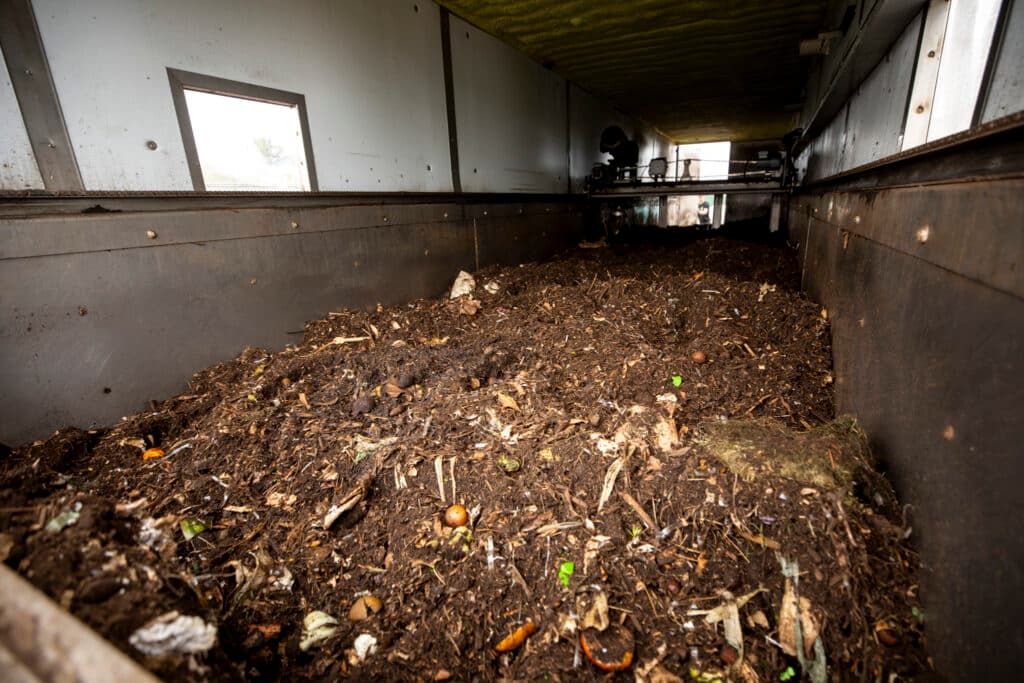
Most composting in Colorado occurs at far larger facilities operated by major waste processing companies. Denver’s municipal composting program, for example, collects food scraps and yard waste from single-family homes. The city then trucks the material to a city-owned landfill in Aurora operated by Waste Management, where it is ground up and piled into towering heaps to break down into plant food.
Backyard compost piles offer another option for residents trying to keep banana peels out of the landfill. Even though it's effective, many people lack the time or real estate to manage their own organic waste.
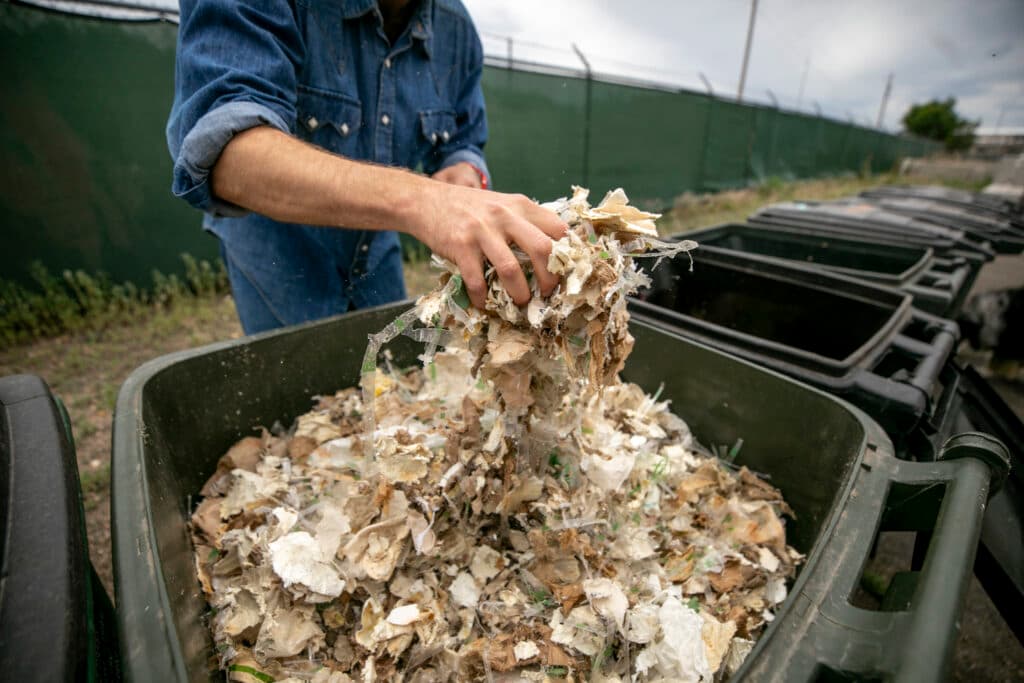
Fussell founded Compost Colorado in 2018 to offer an alternative for businesses and apartment dwellers without access to either option. It now picks up buckets of waste from 2,000 residential customers and another couple hundred commercial customers, like restaurants or radio stations.
(Full disclosure: Denverite and Colorado Public Radio are Compost Colorado customers. We load a bucket in our breakroom with overstuffed coffee filters and apple cores, the main organic byproducts of our member-funded news staff.)
The new micro-composting facility fulfills a plan Compost Colorado has pursued for years.
Until recently, the company hauled all of its collections to a facility operated by Republic Services near Bennet, a community nearly 40 miles from Denver.
In 2022, the company received a $224,000 grant from Colorado to develop its own processing facility at a rented property in Globeville, a heavily polluted neighborhood in north Denver. After the project ran into bureaucratic red tape and landlord issues, Fussell said the company abandoned the concept and terminated its grant contract.
“We almost went out of business,” Fussell said. “We were in a decrepit building that was falling apart with bad landlords. It was bad news.”
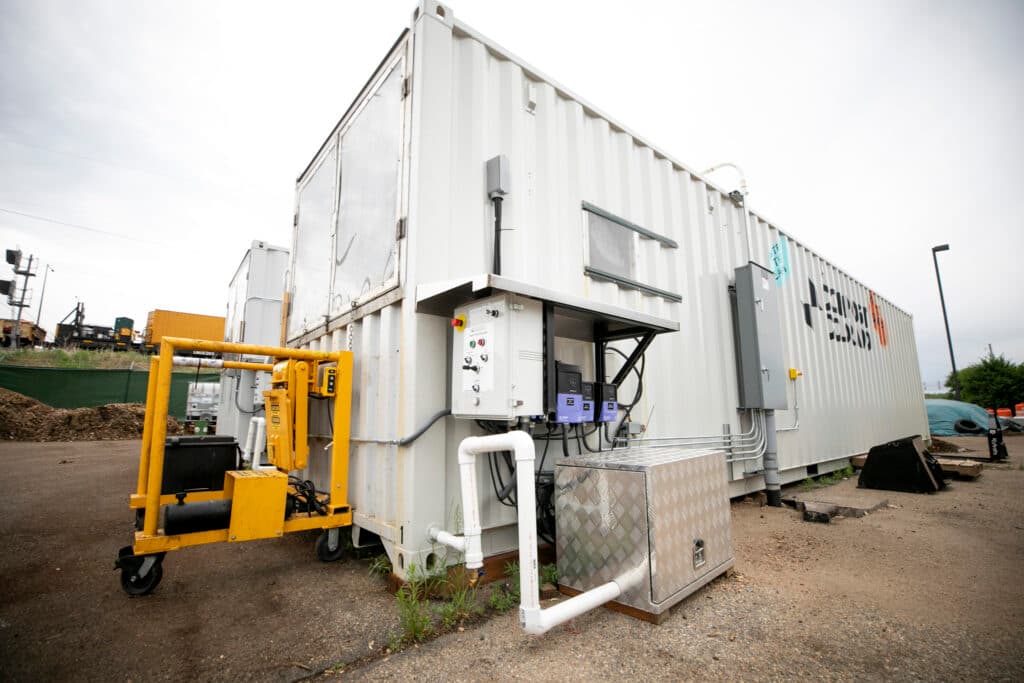
Compost Colorado managed to revive the concept through a partnership with Denver’s National Western Center, the rapidly growing home of the city’s annual stock show. The organization behind the center agreed to offer a free spot for the composting site outside one of its offices.
In exchange, Compost Colorado will process all the organic waste generated by the campus straddling Interstate 70. The company will also offer 10 percent of the final compost to residents living in the nearby Globeville and Elyria-Swansea neighborhoods, said Jenna Espinoza, a spokesperson for the National Western Center.
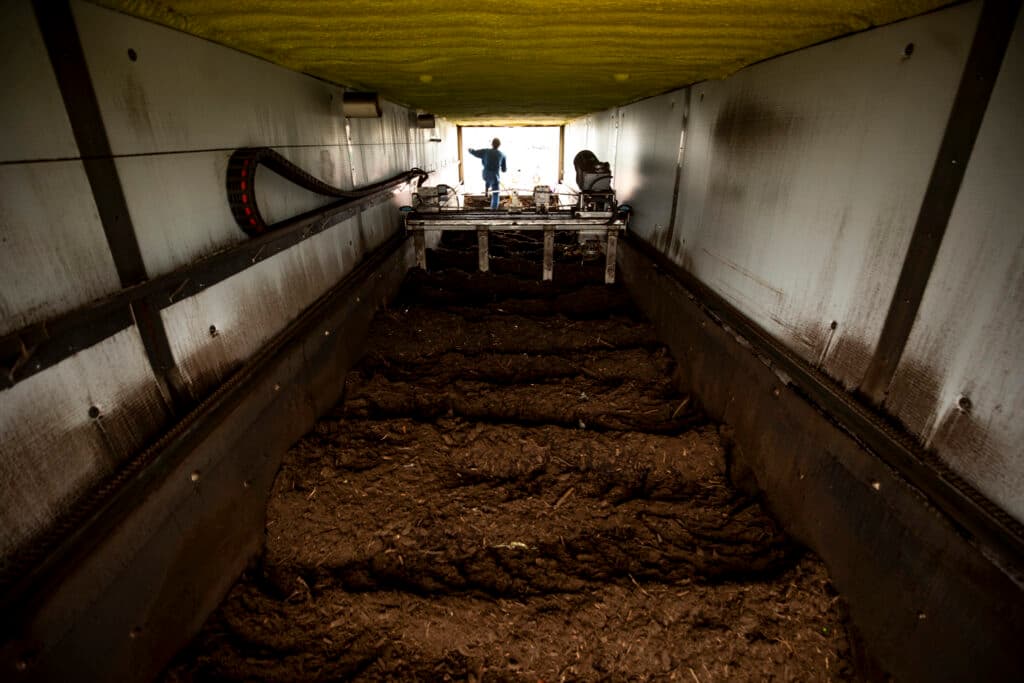
The Colorado Department of Public Health and Environment also bolstered the project with another $374,000 grant.
The site can currently process half of all the organic matter produced by the company’s customers, but Fussell said it’s still relying on its collaboration with Republic Services for the remainder.
More growth to come from restaurant trash — maybe
The company is poised for growth after Denver voters approved a 2022 ballot initiative known as Waste No More, which requires restaurants and apartment buildings to offer recycling and compost services. The Denver City Council, however, has paused implementation of the initiative while it considers whether to exempt smaller restaurants that bring in less than $2 million of revenue a year.
Brian Loma, a waste diversion advocate for the environmental justice group Green Latinos, joined the ribbon-cutting event to encourage attendees to testify against the proposed carve-outs.
“This partnership is amazing, and it sends a message to our city, where the Colorado Restaurant Association is saying it’s too expensive to divert [organic waste],” Loma said.
